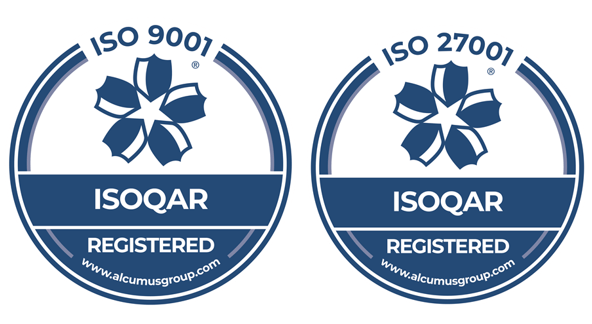It’s undoubtedly an interesting time to be in the ecommerce space right now. Retailers and consumers alike have dealt with almost a year of COVID-19 restrictions affecting day-to-day activities, while also adjusting to the very recent ‘Brexit’. At the same time the world of online shopping is thriving, with the sector experiencing its highest levels of growth in 13 years (source: Retail Gazette), and businesses in general now interacting digitally with their customers in a way that is 3 to 4 years ahead of where it was pre-COVID (source: McKinsey).
Competitive advantage through ecommerce
To explore how retailers are responding to these shifts, and look ahead at the opportunities the coming months and years may bring, we were pleased to host senior industry professionals in our recent digital discussion “2021: The Year for Creating Competitive Advantage Through Ecommerce”.
Retailers have faced a massive learning curve over the past 10 months, and there has been an imperative to rapidly apply and iterate lessons, to maintain effective operations and service provision while continuing to refine and improve the customer experience. Those businesses that have been able to do so find themselves in a strong position as we look to life beyond the pandemic – while those that have failed to keep up risk an uphill struggle.
Our experts
Our discussion featured leaders from the ecommerce and digital sector, providing first-hand insight into their own experiences and advice to help retailers on their own ecommerce journeys:
Benno Wasserstein, Managing Director at Box UK
Working closely with his team, Benno inspires clients on their digital journey, ensuring together they develop exceptional software that is used by millions, disrupting industries and improving society.
Sina Yamani, Chief Executive Officer at Yoello
Sina is CEO at Yoello, an FCA-authorised app-less mobile ordering solution that looks to provide a seamless customer experience. The Cardiff company believes the platform has played a huge role in the survival of the hospitality sector in 2020.
Steve Dukes, Chief Operating Officer at Confused.com
As COO at Confused.com, Steve is focused on growing the business by evolving what it does and how it does it. His passion is in synchronising product, marketing, data and technology to deliver growth and change.
Tom Lewis, Chief Sales Officer at Admiral
Tom is an established senior leader with a proven track record of high-growth brands in the FinTech/InsurTech space, and has had many experiences with embedding new ways of working (such as Objectives and Key Results) into many different environments.
Watch the recording of the discussion
Here’s what you missed
Key insights from what was a fascinating discussion include:
Working practices have changed dramatically
Coronavirus has forced businesses to rapidly and dramatically adjust to new ways of working in order to keep serving customers through the various lockdown restrictions. For Sina Yamani, CEO at Yoello, this shift also occurred at a time for massive growth within the company as it scaled from 5 to 40 employees – requiring changes to hiring processes as well as cultural considerations, to maintain collaboration and social interaction.
Steve Dukes, COO at Confused.com also spoke about the work that they had done to increase clarity around the company mission and invest in culture to facilitate effective operations, while Tom Lewis, Admiral’s Chief Sales Officer highlighted the challenge of providing hardware to newly-remote employees to enable them to continue servicing customer enquiries.
Customers have new needs – and businesses have had to adapt
Not only have workforces faced new challenges, but of course customers have too. Both Steve from Admiral and Tom from Confused.com reported increases in the volume of customers coming to them for help and information, and both insurance companies responded rapidly to these requests.
Steve called out the coronavirus hub Admiral has built to provide customers with answers to their urgent questions, while Tom spoke about how the Confused.com team got web forms stood up in a matter of days to more effectively direct and respond to queries. These initiatives were supported by streamlined processes utilising elements of automation and an increased use of online channels, to help drive efficiencies.
Customer demographics – and expectations – have changed too
Our contributors all agreed that today more customers are more comfortable completing more tasks online than previously, and that the pandemic has also accelerated many other trends that were already apparent in the space. Tom from Confused.com highlighted a step change in mobile device usage, with over 75% of their applications now being completed via mobile.
Steve from Admiral also spoke about the challenge not only to display crucial and often complex information on these devices, but also to make it easy for customers to find the information that’s relevant to them. This aligns with a wider growth in demand for increased clarity, flexibility and accessibility that’s being seen among customers.
Technology is evolving rapidly to keep up
With technology playing a fundamental role in our contributors’ organisations, it was interesting to hear from them about the trends they are seeing in this space. Sina from Yoello spoke about the rapidly-changing payments sector, including the growth of QR codes, Near Field Communication (NFC) technologies and mobile payment solutions, as well as the changes occurring at an infrastructure level in terms of APIs, to allow for greater integration and sharing of data.
Steve from Admiral also called out open finance as a trend he is watching closely, alongside advances in voice search, machine learning and artificial intelligence – and one with the potential to be a key enabler for giving customers more control over their data. Additionally, Tom from Confused.com explained how in recent years they have shifted to architecting using microservices to enable separate bits of code to talk to one another, and support more responsive development.
The technology building blocks are already there for businesses
The shift away from monolithic services towards smaller, interlinked services also presents benefits for retailers looking to introduce or expand their ecommerce offering, by providing the building blocks to create products that have much more flexibility and choice built into them. Box UK’s Managing Director Benno Wasserstein also spoke about how this approach helps speed up time-to-market (citing the recent delivery of two full enterprise ecommerce websites for RS Components in under four months) and helps drive continuous iteration and improvement.
Our speakers also emphasised the need for companies to utilise all the resources available to them when building out their ecommerce capabilities. Sina from Yoello highlighted how working with specialist solution providers and bespoke development partners can speed up delivery and ensure quality – allowing retailers to focus on their own areas of expertise – and Tom from Confused.com also recommended building or hiring expertise, and avoid falling into the trap of thinking you can do everything yourself.
The outlook
Looking to the future then, how can retailers give themselves the best chance of success in 2021 and beyond? Steve from Admiral seemed to sum it up when he said “digital should not mean impersonal”, and that retaining a human element is key, even if you’re a digital business. Technology can certainly help deliver this however and give you the best of both worlds, with Steve having also spoken about the vital role of automation, personalisation and data as key differentiators for retail businesses over the next 2-3 years.
Tom from Confused.com recommended focusing on the experience being delivered, as consumer expectations are today driven by the “best” experience rather than average experiences. Only those brands at the forefront of digital will be able to deliver websites with the strong pulling factor needed to secure repeat visits – and expertise is required in order to achieve this.
What’s next?
As online commerce channels continue to increase in popularity and importance, it’s those organisations that invest effectively in their platforms that will reap the rewards. At Box UK we’ve spent a lot of time working closely with our clients to help them gain the greatest possible returns from their online channels, building richly-featured ecommerce systems and reducing friction across key user journeys to increase customer satisfaction and conversion rates. Take a look at our case studies to learn more, or contact us now to see how our ecommerce services can help you drive new growth and success.

